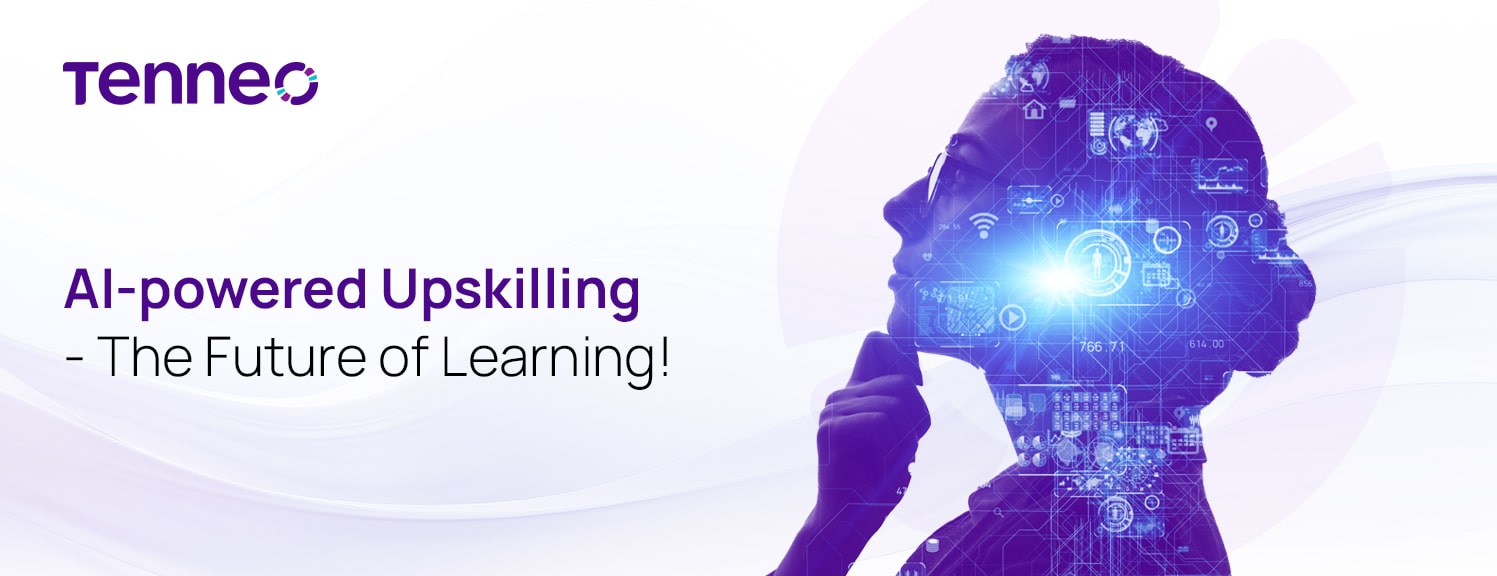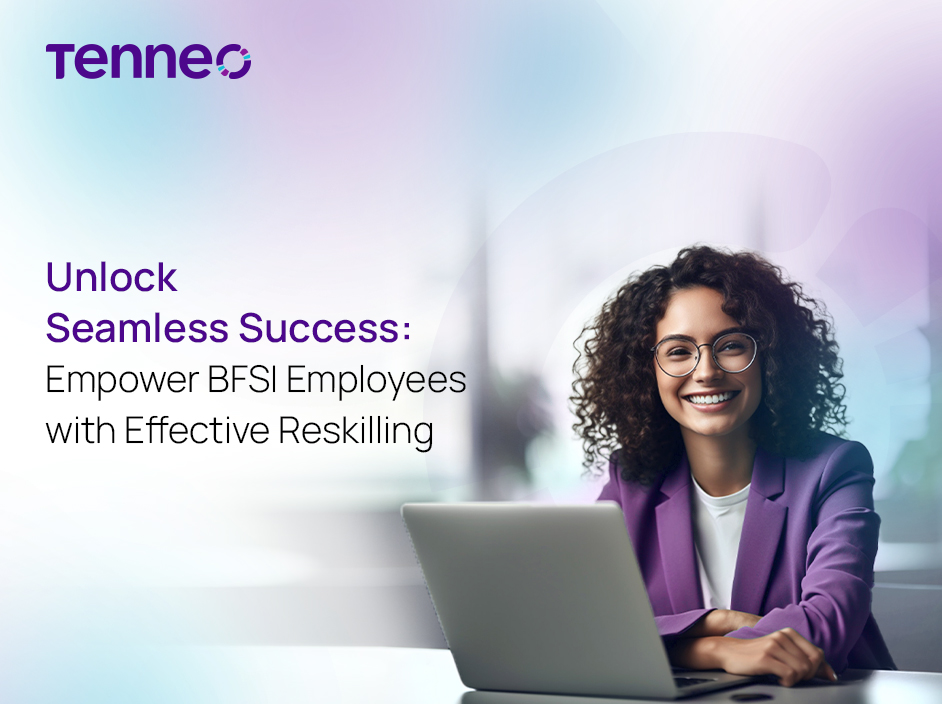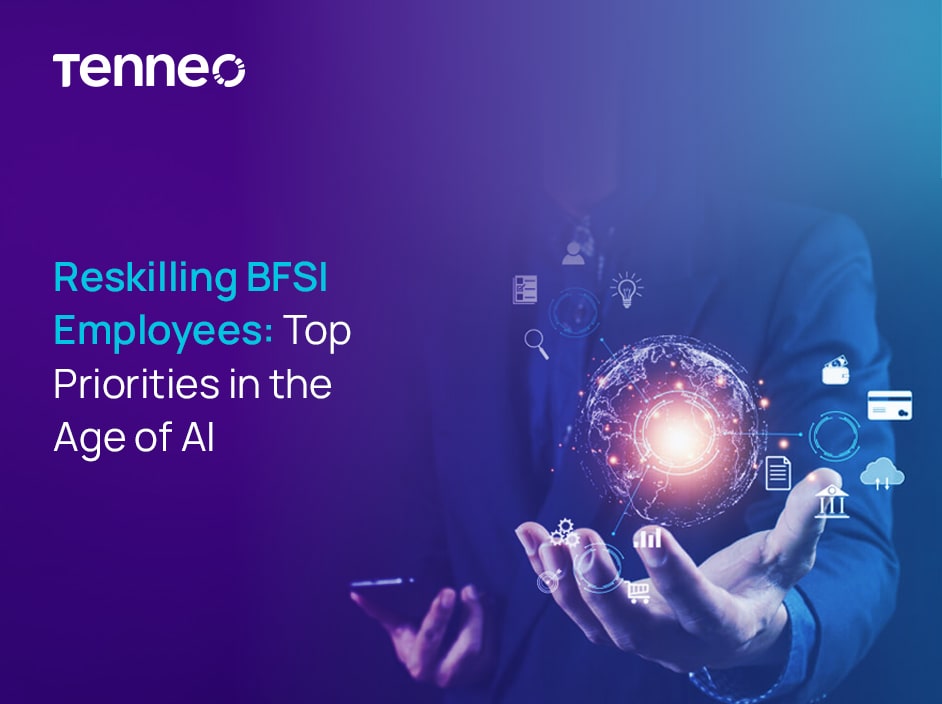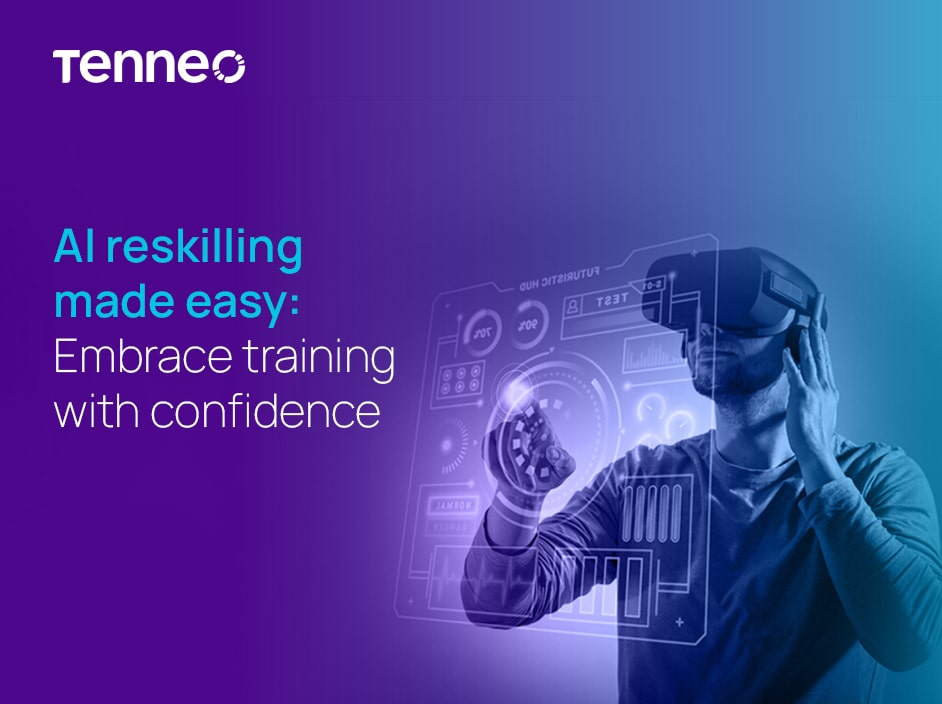If you are looking to automate your Learning and Development process and need to identify the best solution, we can arrange a Personal Demo for you.
G-Cube LMS is now Tenneo!

Overcome Employee Resistance to AI Reskilling
October 5, 2023
Top Employee Reskilling Priorities for the BFSI Sector
October 17, 2023How an AI-Powered LMS can Reshape Employee Upskilling

Artificial Intelligence has ushered in a new era of employee learning and upskilling, where personalized, adaptive, and data-driven experiences are the norm. AI's capability to analyze learner data, tailor content, and provide real-time feedback revolutionizes how employees acquire new skills. It ensures that learning is not just a one-size-fits-all approach but a dynamic, personalized journey that maximizes engagement and efficiency.
In the heart of the Middle East and North Africa (MENA) region, a transformative wave is sweeping through workplaces. Among these technological innovations, AI learning has emerged as a beacon of progress, redefining the way employees are trained. With an increasing recognition of its potential, both in the MENA region and across the globe, AI-powered learning is poised to shape the future of upskilling and reskilling in ways never imagined before.
Growth of AI-powered Learning in the Middle East
A noteworthy finding from the survey conducted by PWC in the Middle East reveals that 46% of HR and L&D leaders acknowledged the capacity of AI to boost workplace efficiency, surpassing the global average of 31%. Interestingly, the general sentiment toward AI in the region was largely optimistic, with 43% of respondents in Egypt, 41% in Qatar and Saudi Arabia, and 39% in the UAE expressing a favorable outlook.
The Middle East survey reveals some key findings:
- Individuals must upskill to thrive in their roles in the next five years.
- There is a growing emphasis on AI-powered learning to upskill employees
- There is an increasing excitement around AI to boost autonomy in learning.
How AI Capabilities can Reshape Employee Upskilling
- Personalization of Learning Paths
Personalization is at the heart of effective upskilling and reskilling. AI-powered LMS systems can create tailored learning paths for each employee based on their unique strengths, weaknesses, and career goals. This helps two employees in the same role receive entirely different training modules because one lacks proficiency in a particular skill while the other excels in it.
This level of personalization ensures that employees don't waste time on skills they've already mastered and instead focuses on areas where they need improvement. As a result, they become more engaged in the learning process, feel more motivated to acquire new skills, and ultimately develop the competencies necessary for their roles and career progression.
- Adaptive Content Recommendations
In traditional learning environments, learners often feel overwhelmed by the sheer volume of content available. AI changes the game by providing adaptive content recommendations. It continuously assesses a learner's progress and preferences, dynamically adjusting the learning materials accordingly.
For instance, if an employee consistently struggles with a specific topic, AI can identify this pattern and offer additional resources, such as explanatory videos or supplementary reading materials. On the flip side, if a learner demonstrates mastery in a particular area, AI can fast-track their progress by skipping redundant content.
- Real-time Feedback and Assessment
One of the primary challenges of traditional training and upskilling methods is the lag time between learning and assessment. AI in LMS addresses this issue by providing immediate, granular feedback on assignments, quizzes, and assessments. Instead of waiting for periodic reviews or evaluations, learners receive real-time insights into their performance.
This timely feedback empowers employees to correct mistakes and also address employee resistance to AI reskilling, if any. It transforms learning from a passive process into an active one, fostering a sense of ownership over individual development and enabling faster skill acquisition.
- Predictive Analytics for Skill Gaps
Predictive analytics is a game-changer when it comes to addressing skill gaps proactively. AI can analyze employee performance data and compare it to the skills required for their roles. This allows HR and L&D leaders to pinpoint precisely where additional training is needed and design targeted upskilling programs.
Additionally, AI can analyze a wealth of data, including learner performance, job requirements, and industry trends. These insights are used to predict which skills will be most valuable for the employees based on their roles.
- Natural Language Processing (NLP) for Effective Interactions
With AI-driven LMS systems employing NLP, learners can engage in natural, conversational interactions, making the learning experience more engaging and interactive. Imagine being able to clarify doubts, seek explanations, or request additional information by simply typing or speaking your questions.
AI, along with NLP capabilities, can respond promptly with accurate answers, fostering a dynamic learning environment where learners can access information when needed. This not only enhances engagement but also empowers learners with immediate solutions to their queries, enabling them to stay on track and make continuous progress in their upskilling journey.
Tenneo LMS – An AI-powered Learning Platform for Effective Upskilling
At Tenneo, we understand that the future of upskilling lies in harnessing the power of AI. Our learning platform seamlessly integrates AI-powered features and capabilities to enhance the upskilling process. These cutting-edge capabilities bring automation, ease of use, analysis, and pattern recognition to learning, ensuring that employees receive the most effective and personalized training experiences.
- AI-based Video Assessments
Tenneo LMS incorporates AI-based video assessments to provide a comprehensive understanding of learners' skills. This feature not only evaluates employees' knowledge but also allows them to gauge their abilities through video assessments.
- NLP Search
With NLP-powered search, Tenneo LMS transforms the way employees interact with the platform. The intuitive NLP search feature enables learners to ask questions and seek information in natural language. This fosters a dynamic learning environment where employees can access learning material effortlessly.
- ML-based Learning Suggestions
Tenneo LMS leverages machine learning to offer precise learning suggestions to individuals. ML-based learning suggestions ensure that learners receive tailored content recommendations, aligning perfectly with their unique needs and preferences.
- Deep Search
The deep search capability empowers learners to explore a vast repository of learning materials with ease. This feature is instrumental in providing continuous learning and microlearning opportunities. Employees can quickly find bite-sized, relevant content, promoting a culture of continuous learning.
Conclusion
AI has revolutionized employee learning and upskilling, offering personalized, efficient, and data-driven experiences. Its growing importance is evident, not only in the MENA region but worldwide. These AI-driven principles, from personalized learning paths to real-time feedback and predictive analytics, are shaping a future-ready workforce.
Tenneo LMS leverages various AI-based features to provide seamless, individualized learning experiences. Contact our LearnTech experts if you are looking to upskill and empower your workforce to thrive in an ever-evolving professional landscape.



